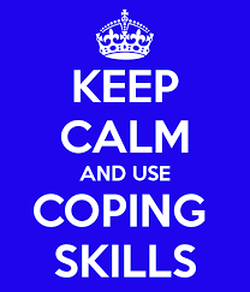
* Look at the situation as if it is happening to someone else. What advice would you give to that person?
* Think about what you need right now to manage this problem. Do you need help with completing tasks, finding resources, managing money, networking, expressing your feelings, having someone keep you company, or any other help? Make a list. When people offer to help, remember: they are sincere. Share what you need from your list.
* Acknowledgethis is a difficult time for you. It might not even be fixable (like one of my clients with MS). It is okay to feel sad and upset. Your life is changing, so you need to grieve what you thought it would be so you can move forward in a positive manner.
* Don’t wallow in self pity. The last step in the grieving process is acceptance. This is where you make a plan to manage the curveball. How can you help yourself? What can help improve this situation? What skills and strengths do you possess?
* Develop a list of coping skills. These are things you can do when you start to feel down or hopeless. Some suggestions include: listen to your favorite music, laugh, read, drawing, write in journal, call a friend, watch a favorite movie or TV show, go for a walk, sing, paint, read inspirational quotes, take pictures, exercise, write positive affirmations and stick them around the house, and the list can go on. Create your own helpful coping skills list.
* Continue to check-in with yourself and your support group. Be honest if today is more difficult than yesterday. Be honest with yourself. If today is tough, go back to the other suggestions and implement
various ways to cope. Ignoring a setback will not help you heal.
As I stated at the beginning, I’m sure we would all like to have a life free from pain and disappointment. When you are in a season of your life where that is not a reality, coping (instead of hiding, ignoring,
denying) is the healthy way to help yourself.
Therapy is also a great option for continued, unbiased help for many different curveballs!

 RSS Feed
RSS Feed